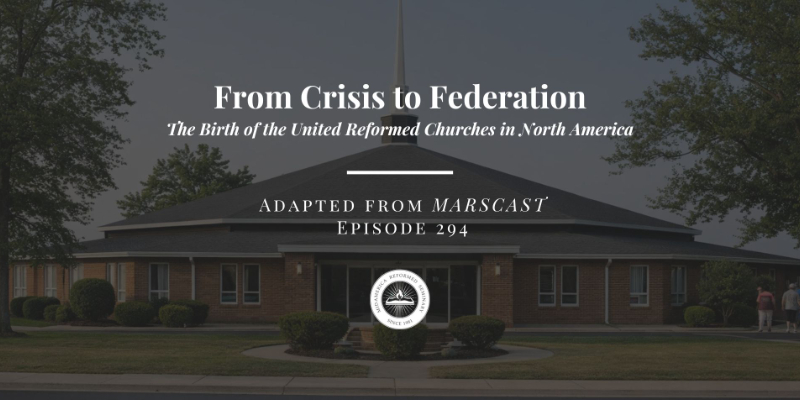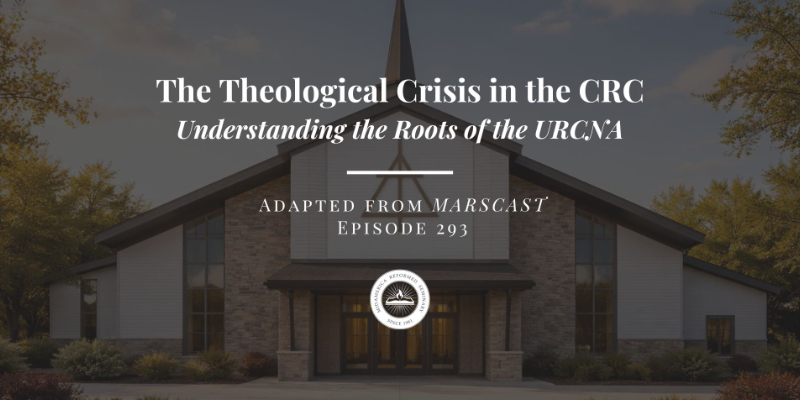
The Peril of Familiarity: Reclaiming Awe in Our Theological Journey
In a recent chapel message at Mid-America Reformed Seminary, Rev. Paul Ipema offered a sobering reflection on a subtle yet serious danger that can afflict anyone who studies theology deeply: the peril of becoming overly familiar with divine things.
Drawing on Psalm 145 and insights from B.B. Warfield’s classic essay, “The Religious Life of Theological Students,” Rev. Ipema urged listeners to guard against allowing God’s Word and the study of theology to become mere academic exercises—works of the head without the worship of the heart. For all who handle the truths of Scripture regularly—students, pastors, or lifelong learners—the challenge is not to lose our sense of awe before the majesty of God.
The Danger of Taking God’s Word for Granted
Rev. Ipema began by identifying a particular temptation in seminary life and theological study—the tendency to take the things of the Lord for granted. When we spend our days parsing Hebrew verbs, diagramming Greek sentences, or crafting theological arguments, it’s possible for the Word of God to lose its wonder in our hearts.
The Bible, rather than moving us to worship, can become just another assignment. In this state, we risk treating holy things as common. Yet, the first petition of the Lord’s Prayer—“Hallowed be your name”—reminds us that reverence is always our starting point.
The Westminster Larger Catechism (Q&A 190) expands this beautifully. It teaches us to pray that God would enable us and others to know, acknowledge, and highly esteem His names, attributes, ordinances, and works—so that all our thoughts, words, and deeds might glorify Him. This prayer confesses that true reverence requires divine grace.
When familiarity dulls our wonder, we lose sight of the glorious purpose for which we exist: to glorify God and enjoy Him forever. Even pastors, Rev. Ipema warned, are not immune. Sermon preparation can become a weekly task rather than an act of worship, the Scriptures reduced to raw material for an outline rather than the living voice of God.
Warfield’s Timeless Warning
Turning to B.B. Warfield, Rev. Ipema reminded listeners that this danger is not a new one. In “The Religious Life of Theological Students,” Warfield warns that “the great danger of the theological student lies precisely in his constant contact with Divine things.”
Theological study, Warfield writes, can cause sacred truths to feel routine: “They may come to seem common because they are customary.” Just as we breathe air and walk in sunlight without thinking of God’s goodness, so too we can handle the “furniture of the sanctuary” without recognizing its divine significance.
The very language of Scripture can become “mere words,” stripped of their soul-stirring power. The mysteries of salvation can become intellectual puzzles. Even God’s mighty acts in redemptive history can seem like distant facts rather than the living story of grace.
Yet Warfield offers a piercing insight: “It is your great danger only because it is your great privilege.” What a paradox. Theological students and ministers walk daily among treasures that angels long to behold. The danger is great, but only because the privilege is greater still.
Theology Must Lead to Doxology
Returning to Psalm 145, Rev. Ipema reminded us that our studies—yes, even midterms and research papers—are ultimately for the glory of God. This psalm exalts God’s greatness, proclaiming His splendor, majesty, and mercy: “You open your hand; you satisfy the desire of every living thing.”
Theology, rightly pursued, must always lead to doxology—the praise of God. Every truth we study, every doctrine we explore, should draw us to deeper worship. The goal of theological education is not simply to fill the mind but to inflame the heart.
Keeping Our Perspective Through Christ’s Grace
How, then, do we maintain this proper perspective? Rev. Ipema pointed us to the only sufficient source: the grace of our Lord Jesus Christ.
In Christ, we behold the glory of God most clearly. He not only redeems us from sin but also opens our eyes to see the Father’s majesty and mercy anew. By His Spirit, He renews our minds and rekindles our hearts, enabling us to approach Scripture with humility, tenderness, and confidence.
-
Humility, because, as Calvin reminds us, we only know ourselves rightly when we first look upon the Lord.
-
Tenderness, because those who have tasted grace become gentle toward others who need the same.
-
Confidence, because the God who has called us will also sustain us—through midterms, ministry, and every challenge in between.
A Privilege Beyond Measure
Rev. Ipema concluded with another moving quote from Warfield: “Think of what your privilege is when your greatest danger is that the great things of religion may become common to you.”
While the world is preoccupied with fleeting concerns, believers—especially those in ministry and theological training—live surrounded by eternal realities. The Word of God, the gospel of grace, the glory of Christ—these are the very atmosphere of our lives.
But this privilege demands vigilance. “God forgive you,” Warfield warns, “you are in danger of becoming weary of God.”
May that never be true of us. Instead, let us pray that the Lord would open our eyes afresh to the beauty of His Word and the majesty of His Son. For our studies and our ministries are not mere intellectual pursuits—they are, in truth, acts of beholding the glory of God.
This article was adapted with the assistance of AI technology and carefully edited for clarity and accuracy by Jared Luttjeboer, Director of Marketing.
Recent articles




